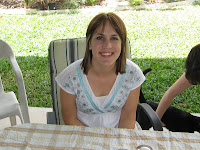What we leave behind.
What does this mean?
Do many of us think about that?
Well, when we're gone, what legacy are we going to leave for those left on earth?
I was reminded of this question last night as I was listening to Steve Kennedy speak at a leadership meeting which we attended.
"I am not my father" he said.
These words refreshed in me, a time when I uttered those same words "I am not my father".
Steve was talking about not repeating the same mistakes his father had.
I'd said it because I was not going to become the same person my father was.
Like Steve, I belong to a large family, six brothers and one sister. I was the youngest.
Though we siblings were a fun loving lot, our father was almost always angry. I never knew why. He worked, like all fathers did, to supports us through school and buy clothes and food. But he was angry. Where did this come from?
Dad wasn't a drinker, though he did like his beer and on Anzac day he often enjoyed too many rums at the R.S.L.
He didn't even drink until during the second world war and even then it was difficult to get.
He was in the R.A.A.F yet didn't leave Australia.
Why was he angry?
I still don't know.
My fathers father spent very little time at home and was mostly working away, wherever the work was. This was in the early part of the 20th century.
I have been told that his mother was always angry. Why?
My oldest brother left home at age 14. Why?
All of us had, at some time or other had fallen out with our father. Why?
My last words with him were an argument.
Were we like him, angry?
The answer to that question for some of us was yes. Why?
My father died last year aged 95 and yes for the most part he was still angry.
I went home for his funeral and, putting aside the sadness felt when you lose a parent, I was overcome by a sensation of sadness for a life that had been lived yet a life that hadn't achieved all that it could've been.
A life that left a legacy of sadness.
I witnessed my oldest brother's sadness and pain as he was barely ably to make it to the funeral, yet he lived only two hours drive away.
A brother who showed no emotion at all.
Another, stricken with grief, who was there at the end as he had helped care for our dad in his last days.
Two didn't come at all.
None of his offspring lived in the same city as he did.
95 years of life had come to this. Why?
Now the anger had turned to sadness. Why?
I committed then not to be like my father.
I want to be remembered for positive things.
Things I've achieved. People I've helped. Lives I've touched.
I attended the Hillsong Mens conference not long after this and Paul Scanlon started one of his sessions with the words
"I am not my Father". This got my attention.
Paul was preaching from his book of the same title.
He was inspired to write this book because during his time in ministry he was finding that he was now counselling young men with the same issues that he had counselled their fathers.
Why was history repeating he asked.
Paul himself had an interesting childhood, which he talks about in the book, and he wrote the book as a way of helping men not turn into their fathers.
So, without going into a complete book review here, I have determined to not become my father.
I have realised that, if left unchecked, we all have a tendency to become what our fathers themselves became.
I have drawn a line in the sand and said enough, it ends here, I am going to be different.
I am going to leave a positive legacy with my family and the people to whom I am close.
Men who have had great fathers might say they wouldn't mind being the same as their father. I say your right, but you still need to be an individual and your sons need to be encouraged to be individuals as well. Don't let them be just a younger you.
As I get older I realise that with age comes a responsibility to encourage younger people to be all that they can.
I have determined that what has gone before me, is not going after me.
I am not my Father.










